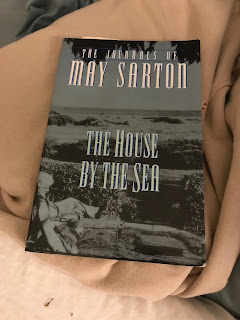 |
| photo by Amy Brandon |
"Walk without a stick into the darkest woods." Cheryl Strayed
Three of the stories Cheryl Strayed tells in Tiny
Beautiful Things haunt me. One is
about her mother’s last gift to her, and it haunts me because it happened to
me. Her mother’s last gift to her was a coat.
In 1993, when I was five months pregnant with my first child, I went to
visit my mother in the hospital. Her cancer was advanced enough that she begged
me to pray for her death and told me she planned to wear the dress she wore to
my wedding to her burial. I was hurried,
harried, overwrought, overworked, confused, and not wanting to hear anything
she had to say about her death. It was
February. I breezed into her hospital
room coatless, because I’d finally reached the point where nothing I owned fit
my growing belly. Even in the midst of her death, she noticed
my lack of a coat, forced cash on me, and made me go to the mall to buy a coat
I could fit into. I kept that coat, ugly
and out-dated though it was, until last year.
The second story Strayed tells that haunts me does so
because nothing like it ever happened to me.
She tells of her mother’s buying a child’s dress at a yard sale years
before Strayed ever thought of having a child and how her child eventually
wears that dress. This haunts me because
my mother never bought either of my children anything, because she never had
the opportunity. Strayed speaks of how
quotidian it is to some people to dress their kids in clothes their
grandparents bought and of how shimmeringly beautiful that one dress her mom
bought was because it was the only thing her mom ever
bought for her child.
The third story haunts me in a good way, because it
makes me understand that I am not alone.
She advises a motherless woman’s fiancé to accept the emptiness that is
part of the woman he loves and to accept that it will never be ok that her
mother died when she was young. She says
that when you lack a parent, it’s like walking around with empty bowls in your
hands that you can never fill. I learned
a long time ago that we learn to live around the voids left in our lives by
death. The best way I can honor my mother is to live the hell out of
the life she gave me and to love my children the same way she loved me, like there was never anything more beautiful in the history of the world.





